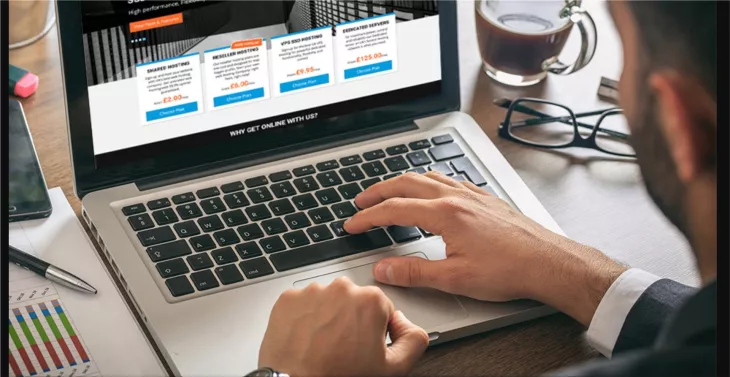Inquire about any objections that are preventing you from moving forward.
Sales FAQs are a wonderful place to get answers to common sales concerns and persuade skeptics. For example, let's imagine one of the most common objections to your product is that it is more expensive than competitors'. Explain why your product/service/business is more valuable than your competitor's by using a question and answer format.
Make your product stand out. First, make a small inventory of all the elements you like about it. Then, ask questions that highlight your product's distinct features. You can not only present a lot of information here, but you can also brag about your firm in a non-obnoxious way. You're not selling; instead, you're educating the customer so she can make an informed decision rather than one based primarily on price.
Make use of visuals
An image can sometimes be a better method to illustrate a concept. Include screenshots on your FAQ page if you're giving directions for completing a certain process, for example. Photos, charts, and illustrations can also help to break up long stretches of text and boost comprehension.
Please make a list of your main pages and link to them.
FAQs allow you to advertise some of your most important pages as well as some of your lesser-known ones. Ask a question about those pages and give a link in your response. The links will direct traffic to such pages while also assisting search engines in locating them.
Add a link to a blog post you've published on a topic related to the FAQ. A post's detailed information can be just what a visitor is seeking.
Include a link to any of your questions and answers that mention a specific product or service you provide. That link could assist a visitor in progressing through your sales funnel, potentially increasing conversions.
Individual FAQ Pages vs. a Global FAQ Page
Individual FAQ pages may be necessary depending on the intricacy of the items or services you're marketing. A separate FAQ page can be created for each product or service. You can go into a lot more detail with dedicated FAQ sites.
You can also create a global FAQ page that has all of the FAQs in one location. Just make sure they're organized into sections so users can locate what they're looking for quickly. You can provide basic responses on the global FAQ page and link to more thorough answers on the relevant product FAQ pages.
A page of Frequently Asked Questions
Let's imagine your organization gets asked some questions only once in a while. They're out of the ordinary, but you know the answers could be helpful to some of your consumers and demonstrate your expertise in the industry.
Create a Questions/Answers page for infrequently asked queries in that situation. From your main FAQ page, you can link to the page. The additional information will be appreciated by visitors who want to learn everything they can about your product, service, company, or industry. There's one more advantage. Keep in mind that search engines prefer sites with high-quality content. If your Frequently Asked Questions page is full of engaging, unique, and informative content, it may help Google rank your site higher.
Key Selling Points Should Be Explained and Reiterated
Your FAQ page should be used to supplement the information that is already available on your website. Consider it a secondary information-gathering tool, a catch-all for essential details.
Because each visitor is different and may take a different path around your site, your important points should appear in multiple places. That way, no matter which path the visitor follows, he'll acquire the information you're looking for.
Make your FAQ page interactive.
According to the Content Marketing Institute, "checking a company's FAQ website is a little like peeping into a family's kitchen during a dinner gathering." "It displays the household's personality: smooth and ordered or neglected and disheveled."
You should keep your FAQ page up to date regularly. Add it to your FAQ page if a consumer asks you a question you've never heard before. Do you have a new product that you'd like to promote? Introduce it on your FAQ page, then link to it in your catalog or on your product page for further photographs and specifications.
Use a query and answer on your FAQ page to direct people to new material on your site that you'd like to highlight. You'll amass a plethora of knowledge for your visitors over time. Make your FAQ page interactive, and it will become a valued feature of your website, as well as a useful knowledge resource and marketing tool for your company.
Keep your FAQs up to date.
Adding questions and answers to your FAQ page will make it more valuable. But don't forget to remove any questions or answers that are no longer relevant.
If your information looks to be outdated, you will lose credibility with your visitors. So make sure all of the links are up to date as well.
To Make the Best Impression, Write Well
Your FAQ page, like every other page on your website, should communicate your professionalism and quality. Make sure your spelling, grammar, and punctuation are correct.
Write in a conversational temper so that reading is enjoyable rather than tedious. You might even fancy adding a little humor to keep the reader interested. Allow your brand's "personality" to shine.
Find a good balance between brevity and obfuscating the reader with unnecessary information. Answering questions with a simple "yes" or "no" is not a good idea. The majority of readers will prefer a more comprehensive response, so avoid the need to ramble. Instead, include a link to a page on your website dedicated to that issue for themes that require more in-depth explanations.
Bullets are an excellent way to present information in a list style. Keep paragraphs to a maximum of 4-5 lines. Text is easier to understand when there is only one topic per sentence.
Think about including videos on your FAQ page.
Having someone provide information through a video will help you create a relationship with the visitor that the written word cannot. In addition, it exposes who is behind the company's website in real life.
Please provide your contact information.
Let visitors know that if their question isn't answered on this FAQ page, they can contact you directly for more information. Make it more simple for people to get in touch with you by including your contact information, consisting of both an email address and a phone number. A link to your Contact page might also be included.
Remember to include a call to action.
Make sure one of your last questions in the FAQs is a call to action. Inform the prospect of obtaining additional information, speaking with a sales representative, or purchasing the product. He should be available to use the next level after studying all that helpful information, so be sure to assist him.
Analyze the Data on Your Website
You've completed the tricky part once you've written and published your FAQ page. But don't just post something and then forget about it. Instead, check your site's analytics after a few weeks to determine if the FAQ page is receiving visitors.
Are people hunting for the FAQ, or are they skipping past it? If it's not getting any visitors, you might want to add suggestions/links to your site to help others find it. How long do your visitors stay on your website/ once they first arrive? The longer time they spend there, the more likely they will read everything you have to say and find it valuable.
After viewing the FAQ page, where do visitors go next? What are they going to do? It's a positive indicator if they're digging deeper into your site. On the other hand, you should probably rewrite the FAQ page if they're quitting your site. Regularly reviewing your analytics will assist you in fine-tuning your FAQ page, as well as other pages on your site.
@the end
@How to Write a Fantastic FAQ Page for your website - part 1.























